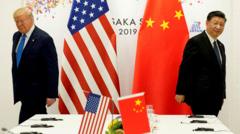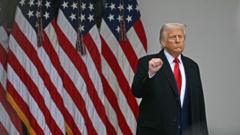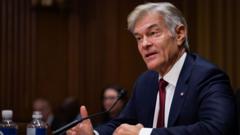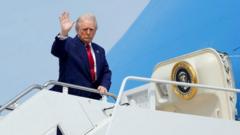President Joe Biden's leadership has shown a contrasting approach to U.S.-European relations compared to his predecessor, Donald Trump. While Biden has actively sought to unite European allies in response to significant global challenges, such as Russia's invasion of Ukraine, Trump has historically viewed these alliances through a different lens. Continuing his long-standing behavior, Trump recently implemented tariffs directed at allies, including Ukraine, marking a dramatic shift in diplomatic relations.
Fractured Alliances: Trump's Tariff Tactics Threaten European Relations

Fractured Alliances: Trump's Tariff Tactics Threaten European Relations
As President Biden rallies European allies, Trump's recent tariff announcements highlight his contentious stance against Europe.
The tariffs imposed by Trump indicate a broader sentiment where he perceives European nations not as partners, but as competitors and, in some cases, obstacles to U.S. interests. This antagonistic perspective undermines decades of collaborative efforts and could jeopardize the trans-Atlantic alliance that has fostered peace for over 80 years. Recognized experts, like Guntram Wolff, a prominent economist, assert that such tariffs could deteriorate trust, fundamentally altering post-World War II dynamics and the essence of the Western alliance.
Even as Europe attempts to maintain its relationships and safeguard the global multilateral framework, the damage caused by Trump's policies has raised concerns over NATO's effectiveness against adversaries like Russia. His tariffs, particularly involving Ukraine yet avoiding nations like Russia and North Korea, may inadvertently bolster Moscow's influence while complicating European unity. The effects of Trump's decisions are likely to resonate long into the future, reshaping not only European relations but the broader geopolitical landscape.
Even as Europe attempts to maintain its relationships and safeguard the global multilateral framework, the damage caused by Trump's policies has raised concerns over NATO's effectiveness against adversaries like Russia. His tariffs, particularly involving Ukraine yet avoiding nations like Russia and North Korea, may inadvertently bolster Moscow's influence while complicating European unity. The effects of Trump's decisions are likely to resonate long into the future, reshaping not only European relations but the broader geopolitical landscape.






















